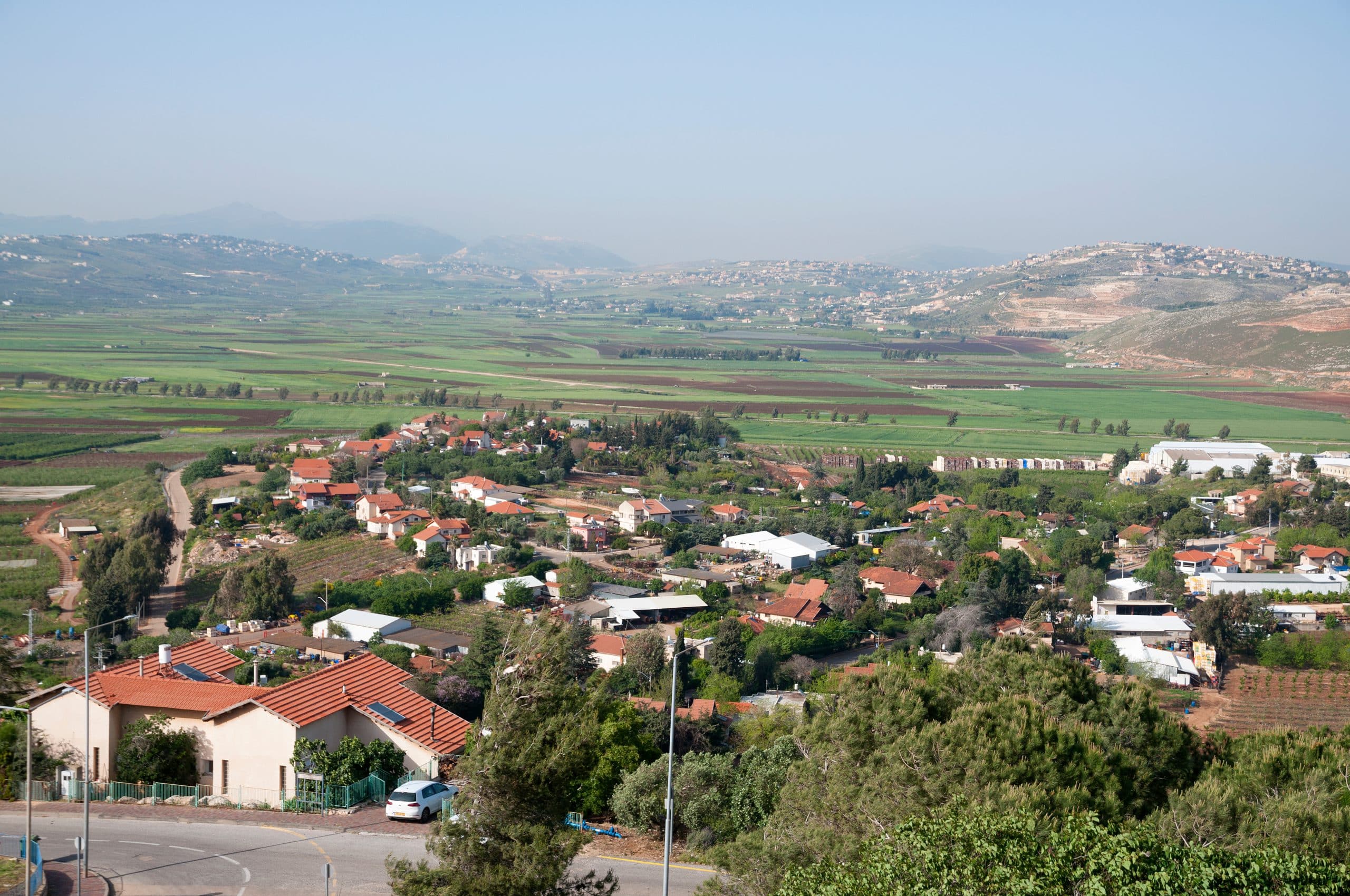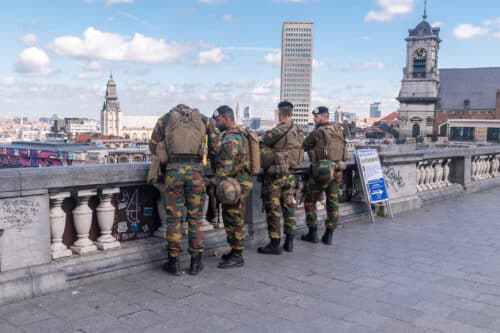
There are various levels of security that a state can provide to its citizens, from full security down to insecurity. That spectrum of levels is overlaid by a second spectrum, the “sense of security,” which may or may not correspond to the objective security situation but influences the attitudes of the local residents and their ability to carry on with everyday life.
Leaving our citizens displaced radiates weakness
We shall start with the assumption that the residents of the north must return to their homes within the coming months. The State of Israel cannot and must not continue supporting a body of almost 100,000 refugees inside the country for long. Not only does the situation impose a heavy economic burden; it also sends a message of weakness both to our enemies and to our citizens when there is somewhere in the country, even close to the border, where life as usual cannot be continued even though Zionism recognizes the value, to the nation and to its security, of civilian life in the country’s risk-prone periphery.
Accordingly, the security services must fulfill certain conditions promptly in order to enable at least reasonable security for the area’s residents, and a sense of security that will persuade them to resume the routine of everyday civilian life in the northern communities.
I wish to stress first that in my view, Israel can enable its northern residents to return even without any large-scale military operation, at least for the moment. Granted, at a certain point Israel will need to take thoroughgoing action against Hezbollah and free itself from the security threat in the north. But there are many reasons not to do so now, and consequently a proper solution must be found that will enable the area’s residents to return home and enjoy reasonable security along with a sense of security.
Thickening the day-to-day military presence
Israel must first massively thicken the military presence along the border and institute a new level of peacetime deployment while taking into account, of course, the more challenging areas of the border, which require greater attention and greater exercise of caution.
Emergency squads and civilian defense forces
In addition to military forces, Israel must arrange for formation of effective emergency squads and civil defense forces in appropriate numbers, through an effort coordinated with the northern communities. Israel must ensure sufficient ordnance at hand, a modicum of training, etc. Israel can no longer rely on the idea that at any given time the intelligence sources can provide prior warning. That is the first and most important lesson from the events of October 7. Israel must be prepared for a massive invasion of Hezbollah forces that are larger and better than those of Hamas, and ensure that what happened on October 7 at the southern border will not recur in the north.

Dealing with Hezbollah’s tunnels
Israel must also persistently and intensively deal with Hezbollah’s attack tunnels. In the time since Operation Northern Shield, which began in December 2018 and handled six cross-border tunnels, more tunnels may have been dug that require attention. This is clearly relevant to the matter of a sense of security. Residents who report that they hear digging beneath their homes feel a serious threat to personal security, particularly after the events of October 7, and this is the best time for taking care of the matter — while legitimacy and international backing are not in question, the border is in readiness, and Hezbollah is treading cautiously in order to avoid all-out war. By dealing with the tunnels inside its territory, Israel will not increase the chance of war. Israel has already done so in the past and Hezbollah did not see it as a “violation of understandings.” Israel knows how to do the job.
Improving protection
Another necessity is to prepare the home front and close the gaps surrounding the border defenses. It must be ensured that all the areas most exposed to missile and rocket fire from Lebanon are equipped with basic means of defense — proper safe rooms, shelters, alarm systems in good repair, etc. It must be said, in all transparency, that the missile and rocket capability of Hezbollah will remain a challenge to the State of Israel even after a large-scale war. The area of southern Lebanon is larger than the Gaza Strip by an order of magnitude, and the organization’s arsenal of missiles and rockets is enormous — far larger than those of Hamas and the other Gazan organizations. Of course Hezbollah’s rocket capability is not confined to southern Lebanon but resides in Lebanese areas farther north as well, so the IDF must be able to neutralize that threat as thoroughly as possible even in territories where, at least at the start of fighting, it will have no ground forces deployed.
Hezbollah will still be able fire rockets, antitank missiles, and other missiles at the northern communities even when the ground operation is well under way and even if Hezbollah’s capabilities are damaged or eroded. Complete neutralization of its deployment will require a long time, and the home front must be in the best possible preparedness in order to mnimize loss of life.
Those are the four conditions that I believe must be implemented with due speed in order to enable the residents of the north to be returned home as quickly as possible rather than dragging out the question of their return any longer than the lengthy period that has so far been necessary.
Over and above the immediate conditions that must be in place, I believe that Israel must strive to attain further accomplishments in the current conflict and to capitalize on the efforts on all fronts.
Driving Hezbollah back across the Litani
One much-discussed condition, and perhaps the most difficult, is driving Hezbollah back north across the Litani River, or at least some kilometers northward. Israel has presented that requirement to the USA, France, and other mediators between itself and Lebanon, but the pullback must either be born of a complicated diplomatic maneuver with international cooperation and with pledges and guarantees from our friends, or be born of a decisive war that brings destruction of infrastructures and elimination of Hezbollah operatives throughout southern Lebanon as far as the Litani River. Hezbollah is currently in a complex position because while it wants to signal support for the Palestinian cause and is even willing to pay a price for doing so, it takes care not to enter an all-out war that apparently even its Iranian patrons do not desire at the moment. Israel must leverage that complexity, with the necessary caution, and make Hezbollah understand that for this demand, Israel is willing to wage war — and even to initiate war, which would cost us heavily on the home front. The pullback must include, most of all, the Radwan Force — the special Hezbollah unit trained for several scenarios of ground incursion into Israeli territory, from limited to large-scale. Israel must, of course, be sure of any agreement’s resources for enforcement — intelligence, partnerships, and other resources — and the consequences of violating the agreement must be clear in advance.
Continuing the targeted killings
Furthermore in the same connection, Israel would do well, in my opinion, to exploit Hezbollah’s obvious wariness of all-out war by including targeted killings, with all necessary caution, during its days of fighting in southern Lebanon. For example, the elimination of Wissam al-Tawil, a senior commander in the Radwan Force, was a significant blow to the organization and its readiness, as was the killing of Abbas Al-Debs, a sector commander in the organization. Those strikes were attributed to Israel without crossing the line into all-out war.
Another achievement Israel should aspire to is stopping the flow of war materiel from Syrian territory. Israel has recently attacked many times in Syria, but the war between the wars is, by its nature, not self-contained and the military buildup of the axis has intensified over recent years.

Attacking without fear
After October 7, according to reports, Israel began to attack senior Iranian elements in the Syrian arena and to assertively strike at more of the key personnel in the strengthening of the axis in the region, including Iranians and Hezbollah operatives whom Israel had been careful not to harm in the past. Israel needs to continue doing so, assertively and without fear. Iran and Hezbollah should be made to realize that Syria is an arena where Israel operates freely and that therefore any Iranian or operative of Hezbollah in the Syrian arena, by taking action against Israel directly or indirectly, becomes a target for elimination by Israel. That is a system-level achievement which will require a long time and will need to be accomplished in parallel with the immediate efforts as part of a new vision that Israel must formulate and pursue at the northern borders.
Preparing the public mentality
On the home front, another prominent aspect — which I consider not a necessary condition for returning the residents to their homes but still important for the future — is the attitude of readiness. The residents of the north in specific, and of Israel in general, have not experienced a war with Hezbollah since 2006. The country’s citizens need to be prepared for the immense, sustained firepower that Hezbollah possesses, something the citizens of Israel have never before known, an order of magnitude greater than Hamas and with better accuracy. In a single volley, Hezbollah can launch more high-trajectory missiles than Hamas can launch in several days of continuous fighting.
The above steps can enable Israel to stabilize its security at the northern border for the long term and ensure the minimum conditions for a return of the northern residents to their homes. It is in Israel’s interest to re-establish routine life in the north, even if accompanied by tension, while thickening the belt of defense and bolstering the country’s security interests. All this can be achieved and maintained only if the war aims in Gaza are accomplished, including victory over Hamas and neutralization of its terrorist and governmental abilities.






